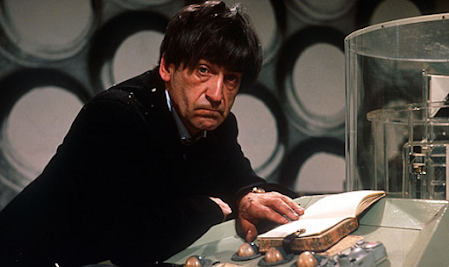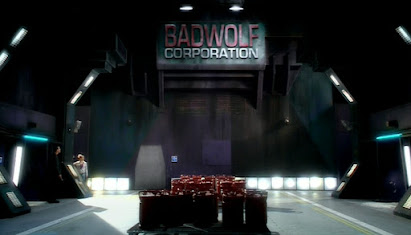Doctor Who has turned sixty years old. The BBC's longest-running drama series aired for the first time on 23 November 1963. Sixty years, forty seasons, exactly 300 stories, 871 episodes, fourteen Doctors and 57 (ish) companions later, the show is still going strong, with a trio of anniversary specials due to start airing on Saturday, seeing David Tennant return to the role of the Doctor.
Doctor Who was created by a team at the BBC, consisting of Sydney Newman, Donald Wilson, Alice Frick, Donald Bull, Anthony Coburn, C.E. Webber, David Whittaker, Mervyn Pinfield and Verity Lambert, who became the show's first executive producer and effective showrunner. The show was designed to fill a Saturday evening gap that had opened between the sports and a music show, with the BBC reasoning they needed a show that could hold the attention of sports fans and ease younger viewers into the pop show.
After incoming Head of Drama Sydney Newman expressed a wish to develop a science fiction idea, the BBC realised it could draw upon a pre-existing stockpile of sets, props and costumes developed for various historical shows over the years, to be used in a time travel series. The production team realised they could also alternate historical and educational stories with science fiction "fun" episodes. Although the development team came up with various aspects of the show, Newman is usually credited as the show's creator for coming up with the name, the premise and the idea of a time-travelling machine larger inside than out.
Ron Grainer and Delia Derbyshire developed the show's distinct music, whilst Bernard Lodge and Norman Taylor created the show's distinctive title sequence, echoes of which can be found in more modern versions.
For the cast, veteran British film actor William Hartnell was cast as the role of the Doctor, a mysterious alien from another world in possession of a TARDIS (Time And Relative Dimensions In Space), a machine capable of travelling anywhere and anywhen. He was accompanied on his travels his granddaughter Susan (Carole Ann Ford). In the very first episode, An Unearthly Child, Susan's schoolteachers Ian Chesterton (William Russell) and Barbara Wright (Jacqueline Hill), become mystified by Susan's incredible brilliance in certain areas but shocking ignorance at others, and decide to travel to her address to talk to her grandfather. However, the address is for a junkyard. They find the TARDIS disguised as a police telephone box, but soon stumble inside and are stunned at its far larger interior dimensions. The Doctor, panicking at the unexpected discovery, launches the TARDIS but loses control of its navigation systems, which are apparently malfunctioning. Over the course of many adventures, the Doctor attempts to return Ian and Barbara to their home time safely. On their travels, they journey to ancient Rome and the court of Marco Polo, are shrunk to the size of insects and encounter their most persistent foe, the Daleks of Skaro.
The show's gruelling production schedule (producing over 40 episodes a year back in those days) took a toll on both cast and crew. Within just three years, the last person left standing from the show's launch was Hartnell, and he was suffering from increasing ill health. When he decided to quit the show early in its fourth season, it was assumed that would be it: you can't have a show called Doctor Who without the Doctor, can you?
However, the production team hit on the idea that, since the Doctor was an alien, he could perhaps "die" but then be reborn in a new, younger body. Hartnell was consulted on the idea and he gave it his approval, even suggesting his own replacement: Patrick Troughton. Troughton was duly cast and the Doctor changed his appearance for the first time at the end of the classic serial The Tenth Planet, which was also notable for introducing the Cybermen.
The reign of the Second Doctor was more consistent - he was joined by Highlander Jamie McCrimmon (Frazer Hines) for almost its entire length as his companion - but saw some changes in the format. The historical stories, which had never been hugely popular, were quietly dropped. The Doctor would still continue to visit historical periods but now would encounter science fiction threats there. There was a renewed focus on monsters, and the Second Doctor's reign saw the introduction of the Ice Warriors, Macra and the Great Intelligence, all of whom would return in the modern era of the show. Towards the end of the Second Doctor's run, he visited Earth in the near future and encountered a military organisation known as UNIT (United Nations Intelligence Taskforce), ironically inspired by the various times the Doctor had defeated alien incursions with the help of local military or government forces.
Troughton decided that three years was the optimal time to remain on Doctor Who without being typecast; the so-called "Troughton Rule" of each Doctor staying for three years or three seasons would be followed by seven succeeding Doctors, with three staying for an even shorter period and only two for a longer period. With his departure at the end of the sixth season, airing in 1969, the BBC decided to revamp the show by making it in full colour, which came at the cost of reducing the episode count to a more modest 26 episodes a year.
Inspired by faster-moving US SF productions like Star Trek, not to mention the gadgets and action of the James Bond movies, there was a shift to more action. To save on costs, the TARDIS was grounded, with the Third Doctor, now played by Jon Pertwee, exiled to Earth by his own race, the Time Lords, for breaking their rules on non-interference. The Doctor joined UNIT as its scientific advisor and gained not just new companions but also a whole set of new allies, led by the formidable Brigadier Lethbridge-Stewart (Nicholas Courtney). The Doctor also gained a nemesis, in the form of the evil Time Lord known as the Master (Roger Delgado). Their Holmes-and-Moriarty-like banter and bickering became a hallmark of the Third Doctor's reign. This era also saw the first multi-Doctor celebration in The Three Doctors (1973), where Pertwee, Troughton and Hartnell's Doctors are united by time travel to face the threat of the insane Time Lord known as Omega. Pertwee stayed in the role for five years (1970-74), electing to leave after Roger Delgado's death in a tragic car crash.
For the Fourth Doctor (1974-81), the BBC decided to cast the relatively unknown Tom Baker in the role. Baker's eccentric mannerisms, deep booming voice and idiosyncratic humour soon won him legions of fans, and his run on the show would generate many of the best-regarded Doctor Who stories of all time: The Ark in Space, Genesis of the Daleks, Pyramids of Mars, The Talons of Weng-Chiang, The Deadly Assassin, The Robots of Death, City of Death and more. Under Baker's reign, the show hits its highest-ever audience figures of over 16 million, and achieved its first breakthrough in the United States, with Baker stories airing on PBS creating a small but devoted following (including future Simpsons creator Matt Groening).
Baker stayed in the role for seven years, still a record, and may have stayed for longer, but incoming new producer John Nathan-Turner was keen for a revamp, feeling the show needed to be revitalised for the 1980s. For Baker's last season a new, more electronic theme tune and title sequence was developed, younger companions were introduced and Baker's tendency to adlib dialogue and improvise on set was heavily reigned in. Baker quit at the end of the eighteenth season and was replaced by the younger Peter Davison as the Fifth Doctor (1981-84). During Davison's tenure it became clearer that the show's low budget was becoming extremely problematic in keeping the show relevant, and viewers interested, especially in the face of increasingly stiff competition from big-budget, glossy American shows. However, generally strong scripts ensured that Davison's reign was remembered fondly.
Davison was succeeded by Colin Baker as the Sixth Doctor (1984-86), with the plan being that Baker's Doctor would be unpredictable and unstable, even dangerous, before evolving into a more civilised version of the Doctor. Unfortunately, this simply made him unlikeable out of the gate. Incoming, new BBC executives disliked the show and tried to kill it, but viewing figures remained reasonable. After an eighteen-month hiatus after Baker's first season, the show was brought back with a drastically cut episode count (to just 14 half-hour episodes) and a shift to a midweek timeslot opposite Britain's most popular show, Coronation Street, carefully designed to make the show unviable.
Baker was also fired and replaced by Sylvester McCoy as the Seventh Doctor (1987-89), a comedian best known for an act involving putting ferrets in his trousers. Against the odds, McCoy played his Doctor as a master-manipulator and cunning instigator of plots, developing a formidable bond with his companion Ace (Sophie Aldred), a teenager from a rough London estate who thrives when taken on adventures in time and space. McCoy's era generated several classic stories and was on a creative and critical high when the BBC decided to "rest" show after its 26th season in 1989.
Doctor Who spent sixteen years in the wilderness, with only a single TV special in 1996 starring Paul McGann as the short-lived Eighth Doctor. The show continued to generate considerable income for the BBC through VHS and, later, DVD sales, toys, models, video games, comic books and a vast range of novels and short story collections (including stories by Russell T. Davies, Steven Moffat, Paul Cornell and Mark Gatiss, amongst many others). The BBC kept trying to relaunch the show as a big-budget movie, but could not attract significant Hollywood interest.
Finally, the BBC resurrected Doctor Who in 2005. Russell T. Davies, one of the hottest British TV writers in the business and a lifelong Doctor Who fan, picked up the reigns after the success of his dramas Queer as Folk, The Second Coming and Casanova. He returned the show to Saturday night primetime and recruited Christopher Eccleston to the play role of the Ninth Doctor, with former pop star Billie Piper playing his companion Rose. The new show shared continuity with the old, but was softly rebooted, with a new premise which saw the Doctor as the last survivor of his race after they were annihilated in the Great Time War against the Daleks.
The show saw impressive viewing figures on its return, with young children particularly swept up in its charm. The show started shifting vast amounts of merchandise, and picked up steam on BBC America in the US. There was an early hiccup when Eccleston quit after just one season due to creative differences with one of the directors, but he was quickly replaced by David Tennant as the Tenth Doctor (2005-10). Tennant's performance came to be regarded as iconic, on a par with that of Tom Baker for the classic show, and his popularity was impressive. He did three full seasons as the Doctor and a series of specials. During Davies' run he also extended the franchise's reach to other shows, with the adult-focused Torchwood (2006-11) and the kid-friendly Sarah-Jane Adventures (2007-11) both launching on his watch.
Tennant's departure coincided with that of Davies, and the immensely popular writer Steven Moffat picked to succeed Davies. He brought in Matt Smith as the Eleventh Doctor (2010-13), who brought a younger energy to proceedings. Under Smith's sure hand, the show experienced arguably the zenith of its appeal and fame, achieving a major, breakthrough success in profile in the United States. The 50th anniversary special, Day of the Doctor, aired in cinemas worldwide and saw huge viewing figures achieved.
The reign of the Twelfth Doctor (2013-17), played by Peter Capaldi, was critically acclaimed, particular for the episode Heaven Sent, but saw complaints about convoluted plotting. The show also experienced budget problems during this time, airing increasingly intermittently and dropping its episode count. There was also speculation that Moffat had stayed too long (eight years, only one less than John Nathan-Turner in the 1980s); he departed alongside Capaldi.
Capaldi was succeeded by Jodie Whittaker as the Thirteenth Doctor (2017-22), the first actress to play the role. Chris Chibnall, who had been writing for the show since the Russell T. Davies era, became showrunner off the back of his hot detective show Broadchurch (2013-17). The show became more filmic during this period, with most sophisticated effects and expansive location filming in South Africa. However, the budget continued to be squeezed, with the show dropping to just ten episodes per season and extremely long gaps between seasons (not helped by the COVID pandemic). The show also moved from Saturday to Sunday nights, and the Christmas Special was dropped in favour of a New Year's Special that attracted far less attention. The show's critical acclaim dropped to its lowest level since its return in 2005, with criticism of the overlarge cast (which sometimes left the Doctor with little screen time), leaden pacing and a curious decision to retcon the Doctor's origins. Viewing figures also fell significantly during this period.
Despite early discussions about a five-season run and story arc, Whittaker and Chibnall decided to leave after three seasons and a series of special episodes; ironically, their very last episode as also their best, and best-regarded. In a shock move, the BBC was able to recruit Russell T. Davies to return to the show. Davies had gained international stature after leaving Who in 2010 through a series of prestige dramas, including Years and Years and It's a Sin. Davies used his return to leverage impressive results: Doctor Who would return to Saturday nights, the Christmas Special would return, the entire Doctor Who archive would be made available via the BBC iPlayer, the show would move to an independent production company (Bad Wolf, founded by Davies' former friends and coworkers from during his original tenure on the show) and Disney+ would co-fund the series and distribute it internationally on its streaming platform. For the show's 60th Anniversary, Davies would also bring back Tennant, albeit playing the distinctive Fourteenth Doctor rather than the return of the Tenth.
It would be confirmed that Tennant's return would be limited, with Scottish-Rwandan actor Ncuti Gatwa cast as the Fifteenth Doctor, to debut in the 2023 Christmas Special. Gatwa is already filming his second season as the Doctor months before his first is due to air.
The appeal of Doctor Who is fairly obvious: the show can go anywhere in space or time. Despite a gradual accumulation of lore, backstory and story arcs over six decades, the show is mostly focused on standalone stories than anyone can enjoy. The show has always been aimed at family audiences, as Davies once said, to appeal to everyone from eight to eighty. The show features action, but the Doctor is reluctant to kill or use violence, preferring thinking and negotiation. The concept of regeneration, as well as the revolving door of companions, constantly allows the show to refresh itself every few years, with constant media interest in the next actor to take on the role.
That Doctor Who is still being made after sixty years is incredible. Hopefully it will go on at least sixty years more.































